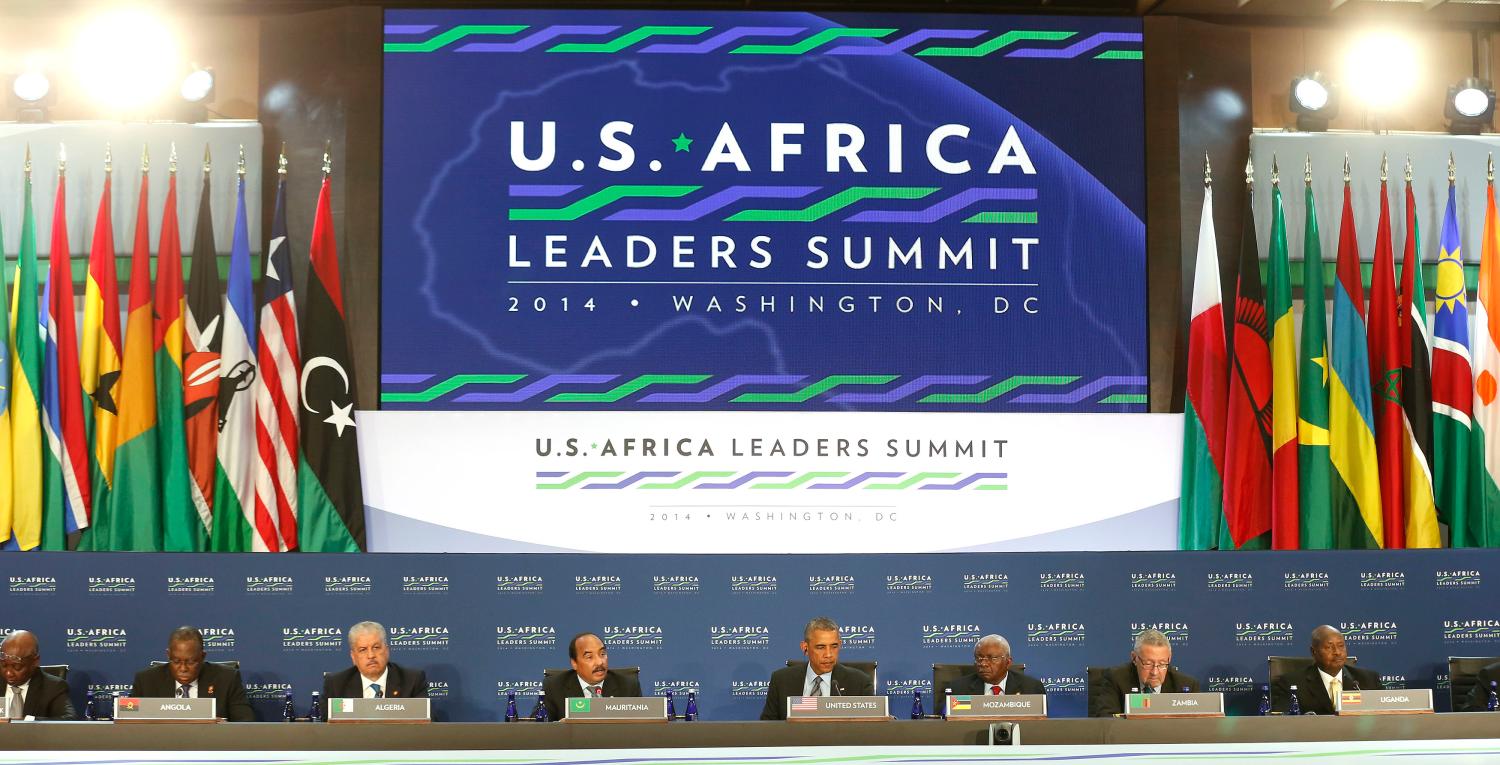Editor’s Note: The U.S.-Africa Leaders Summit blog series is a collection of posts discussing efforts to strengthen ties between the United States and Africa ahead of the first continent-wide summit. On August 4, Brookings will host “The Game Has Changed: The New Landscape for Innovation and Business in Africa,” at which these themes and more will be explored by prominent experts. Click here to register for the event.
As the clock ticks down towards the U.S.-Africa Leaders Summit on August 4, the level of expectation is ramping up as to what the summit will deliver. Foreign Policy’s Gordon Lubold is the latest to distill views from Africa experts, and his does not make for encouraging reading. But while the article does a good job of building a discussion around this important event, it makes the common mistake of focusing too heavily on China’s engagement with the continent and ignores the key successes of the summit in the process. In a recent blog, my colleagues and I compare the U.S.-Africa Leaders Summit with similar forums organized by not only China but also the European Union and Japan. Although not all our recommendations have been followed, we believe that the main measure of success of the first summit between African leaders and the 44th U.S. president should be whether the United States can seize an unprecedented opportunity to build a strategy “together” with Africa.
Here is where I disagree with FP:
Argument 1: African leaders will compare their treatment at the U.S. summit with the way they are received by China’s leadership.
It is true that, unlike his Chinese counterpart, President Obama is not scheduled to have one-on-one meetings with his African guests. Holding bilateral meetings would have been a “first-best” solution but it will not be a deal breaker. African leaders will be coming to Washington, D.C. because they see benefits in engaging the U.S. administration on key economic and political issues. Furthermore, the format of the August 6 Summit Leader Meetings allows for a broad, constructive dialogue that will help President Obama play his role as a welcoming host. We suggest that, in addition, he meets bilaterally with the leaders of the African Union and the Regional Economic Communities.
Argument 2: The U.S. is too late, and China is winning.
It is true that China has been holding summits with African leaders for 14 years now. But the U.S. coming late to the summit game does not mean it is losing the continent. In fact, the U.S. loss of competiveness relative to China is often blown out of proportion. China is very active on the continent, and most of the recent growth in aid, trade and investment to Africa can be attributed to China. China is now Africa’s largest bilateral trade partner. But the U.S. has a long-standing economic relationship with the continent. In a recent blog on foreign direct investment (FDI) to the continent, we note that the U.S. and France were the largest sources of FDI stock for sub-Saharan Africa in 2012 at $31 billion each, followed by the U.K. with $25 billion. The potential for more U.S. FDI is huge given that less than 1 percent of U.S. global FDI stock abroad is destined for the region. While China invested 3.4 percent of its FDI stock abroad in the region in 2012, but that only accounts for $18 billion (estimates range from $18 to $21 billion depending on the data source).
Argument 3: The business forum will not lead to major deals and therefore is of limited value.
I also do not expect major deals, but the U.S. has an opportunity to shape how the U.S. private sector can engage the continent. President Obama’s Power Africa initiative aims at considerably strengthening the role of the U.S. private sector in energy projects in the continent. At a time when the aid community is recalibrating its model towards more “blended” programs that leverage the public sector’s role to partner with the private sector, Power Africa is a welcome innovation. In addition, commitments from the U.S. and African private sector have already been announced. The U.S.-Africa Leaders Summit should not be seen as the beginning of a process, but rather as another important step in ongoing U.S. engagement with Africa. It will certainly build on a number of recent meetings such as the U.S.-Africa Energy Ministerial in Addis Ababa or Commerce Secretary Penny Pritzker’s visit to the continent earlier this year. President Obama’s scheduled presence at the business forum shows its importance for the U.S. administration.
Argument 4: African leaders will resent the U.S. message on human rights.
I find this argument difficult to digest. First, the U.S. has been consistent in its message to strengthen governance, defend human rights and promote democracy, so this should come as no new surprise to African leaders. Secretary of State John Kerry’s recent visit to the Democratic Republic of Congo is a good illustration of the U.S. stance on such matters. But why focus only on how African leaders may feel? How about African citizens, civil society organizations and members of opposition political parties? The U.S.-Africa Leaders Summit is an opportunity to have a genuine conversation about difficult and sensitive issues. Future generations of Africans deserve such a debate.
And while China may have no qualms doing business with countries with dubious human rights records, it refuses to invite countries that recognize Taiwan to its summit.
The Brookings Institution is committed to quality, independence, and impact.
We are supported by a diverse array of funders. In line with our values and policies, each Brookings publication represents the sole views of its author(s).




Commentary
The U.S.-Africa Leaders Summit: Far from “Bungled”
July 16, 2014